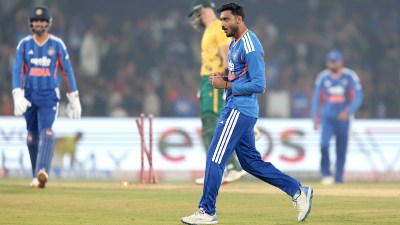Indeed, it was after an order by this bench that proceedings against Reddy, in a disproportionate assets case, resumed in a CBI Special Court in Hyderabad on October 9.

The very next day, Principal Advisor to the Andhra Pradesh Chief Minister Ajeya Kallam released the CM’s letter to Chief Justice S A Bobde.
The CM last appeared in the CBI Court on February 7 and he has filed 11 petitions seeking exemption from personal appearance citing logistical reasons and his busy schedule.
On October 9, when hearing resumed, Reddy’s counsel G Ashok Reddy sought for virtual hearing of the case. The court has posted the matter to Monday.
The case against the CM goes back to August 10, 2011, when the Andhra Pradesh High Court directed the CBI to inquire into allegations of corruption and misappropriation in the late Dr Y S Rajasekhara Reddy’s government in a petition filed by Congress MLA P Shankar Rao.
On August 17, 2011, the Anti-Corruption Bureau of CBI registered an FIR against Y S Jagan Mohan Reddy and others under IPC Sections 120-B (Criminal Conspiracy); 409 (Criminal breach of trust); 420 (Cheating); 468 (Falsification of documents); 471 (Using forged documents as genuine); and Sections 11, 12, 13 (2) of Prevention of Corruption Act.
Story continues below this ad
After seven months of investigation by a CBI multi-disciplinary team, the agency filed its first chargesheet on March 31, 2012. The 68-page chargesheet named Jagan Mohan Reddy who was MP from Kadapa then, as Accused Number One and alleged that he amassed wealth disproportionate to his known sources of income.
Twelve others, including his confidant V Vijay Sai Reddy, were also named in the chargesheet. The CBI’s primary charge against Jagan Mohan Reddy was that he influenced his father — when he was CM from 2004 to 2009 — to issue orders that favoured some private companies and individuals by granting mining leases or land at cheap rates, who, in turn, invested in Jagan Mohan’s businesses in a quid pro quo arrangement.
The CBI filed 10 more chargesheets related to various projects and individuals who invested in Jagan’s companies, in which Jagan Mohan Reddy is named as an accused.
Based on the CBI’s findings, the Enforcement Directorate also filed five cases against him. On January 17 this year, Jagan Mohan Reddy petitioned the CBI court to postpone money laundering cases until the trial in the CBI cases was completed but the court rejected his petition.
Story continues below this ad
The ED argued that its money laundering cases and CBI cases were linked and should be heard together.
Meanwhile, in the apex court, the 2016 petition seeking a ban on convicted legislators and special courts to fast-track their cases, filed by lawyer Ashwani Upadhyay, was heard by benches headed by Justice Ranjan Gogoi till his retirement in November 2019 after which it was listed before the bench headed by current Chief Justice S A Bobde who marked it to the bench headed by Justice Ramana.
In November 2017, the apex court bench headed by Justice Gogoi had ordered setting up of Special Courts in each state to try the pending cases. Accordingly, 12 such courts were set up across the country.
However, with pendency still high and disposal rate slow, the SC has continued to monitor the matter and issue directions. The court also appointed Senior Advocate Vijay Hansaria to assist it as amicus curiae in the matter.
Story continues below this ad
The Justice Ramana Bench took up the matter first on March 4, 2020.
On March 5, the SC which had earlier directed the various High Courts to furnish details on pending cases against legislators, asked them to provide one more piece of information — “expected time of completion of trial in the matter”.
All the information furnished by the different HC’s was subsequently collated by Hansaria and presented to the SC. The report pointed out that there are around 4442 cases currently pending against the MPs and MLAs including 2556 against sitting people’s representatives.
The amicus report said that one of the reasons for the pendency of the cases was the stay granted by higher courts.
Story continues below this ad
Taking note, the Justice Ramana bench, on September 16, asked High Court Chief Justices to constitute a Special Bench to monitor the progress of trial of these cases and to “forthwith” list all such cases which have been stayed and decide whether the stay should continue or not.
All eyes are now on how the Supreme Court responds to this unprecedented letter from a CM to the CJI. “It would be less than responsible for a political party from a political podium to comment at this early stage on this letter. I think it has been entrusted to what we call the Parens patriae, the guardian of this citadel and it is for him to react. It is not appropriate that any of us makes any irresponsible comment at this stage,” said Congress spokesperson Abhishek Singhvi when asked about the issue at an AICC press briefing.









